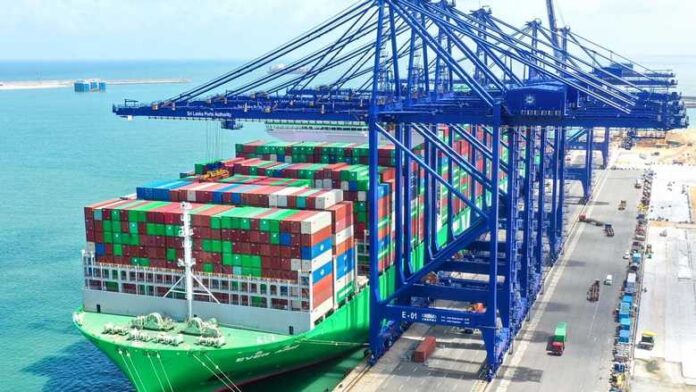By: Staff Writer
January 27, Colombo (LNW): The Sri Lankan government recently took responsibility for the release of 323 containers by Sri Lanka Customs without inspection, citing operational bottlenecks at the Colombo Port.
According to Ports Deputy Minister Ruwan Kodithuwakku, this decision was made to address delays and congestion caused by the daily arrival of over 2,000 containers.
He clarified that this was an uncommon measure, implemented through a three-member committee based on specific criteria.
Samagi Jana Balawegaya (SJB) MP Harshana Rajakaruna raised concerns in Parliament regarding these uninspected containers, some of which were reportedly flagged in the ‘red zone,’ signaling potential risks.
He expressed fears about the lack of transparency surrounding their contents, which could lead to regulatory lapses. In response, the Deputy Minister acknowledged these concerns and emphasized the need for long-term solutions, such as expanding container yards, to prevent similar issues in the future.
The Association of Container Transporters criticized the government’s handling of the situation, stating that the current infrastructure and manpower were insufficient to manage inspections properly.
They suggested implementing a streamlined digital system to improve monitoring and accountability. Meanwhile, the Customs Trade Union Alliance (CTUA) distanced itself from the decision, refusing to take responsibility for the uninspected containers.
The union raised concerns that some containers might contain substandard goods, such as unapproved medicines, unsafe cosmetics, or even illegal items like unauthorized cigarettes, drugs, or weapons. They warned that such lapses could jeopardize public safety and national security.
The CTUA also questioned the legal framework that allowed the bypassing of mandatory customs inspections, emphasizing that around 80% of the goods in these containers required thorough examination.
The union called for clarification on the higher authorities responsible for authorizing the release, pointing to potential gaps in oversight and accountability within the customs process.
Critics argue that releasing uninspected goods undermines public confidence in regulatory institutions and compromises the integrity of customs operations. The risk of harmful or illegal items entering the market raises significant concerns for public safety.
This incident has sparked widespread apprehension about legal compliance, transparency, and national security, putting pressure on the government to provide clear explanations and implement measures to prevent similar occurrences.
Potential risks include public health hazards if substandard goods, such as unapproved medicines or unsafe cosmetics, are allowed into circulation. There is also the possibility of illegal imports, such as prohibited drugs, unauthorized cigarettes, or weapons, which could pose serious security threats.
The CTUA’s questioning of the legal basis for releasing these containers without inspection highlights concerns about procedural lapses. They are seeking clarification on the legal provisions that permitted such actions, particularly since a significant portion of the goods required mandatory customs checks.
The union’s disassociation from the decision signals potential weaknesses in accountability within the customs process. This situation underscores the importance of a robust oversight system to ensure compliance with legal standards and maintain public trust.
In conclusion, the government’s decision to release these containers without proper inspection has raised significant concerns about public safety, legal compliance, and regulatory integrity. It is crucial for the authorities to provide transparent explanations and take steps to prevent similar incidents in the future to safeguard national security and maintain the public’s confidence in customs operations.

